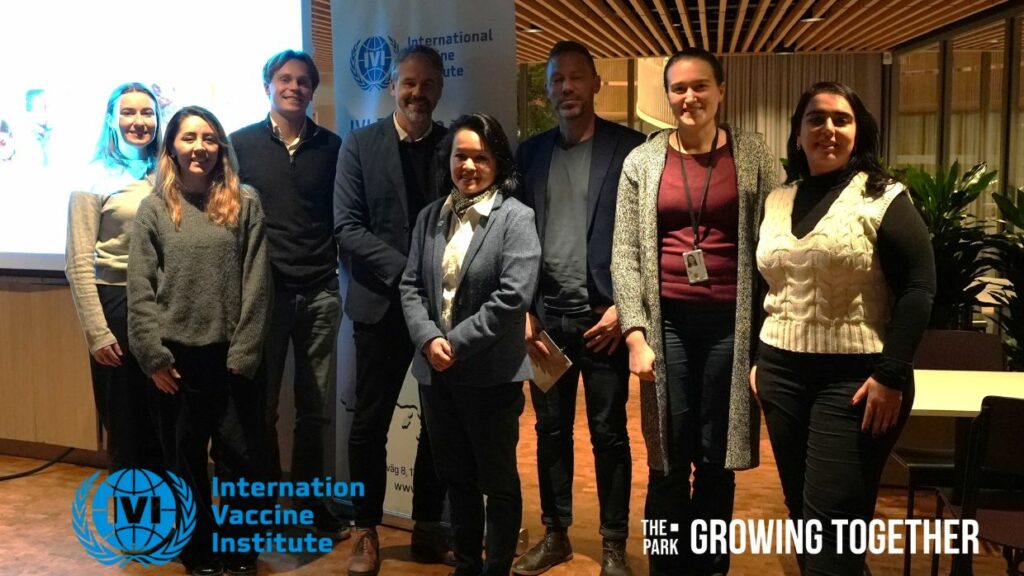In a recent seminar titled “Using Public-Private Partnerships to Enhance HPV Vaccine Uptake,” Dr. Anh Wartel, MD, Head of the Europe Regional Office at the International Vaccine Institute (IVI), shared valuable insights on leveraging collaboration, innovation, and advocacy to improve HPV vaccine adoption globally. Speaking at the World Economic Forum’s Access to Medicine Hackathon in Davos, Dr. Wartel shed light on both the challenges and opportunities in advancing HPV vaccination through a multidisciplinary approach.
The Role of Public-Private Partnerships
Public-private partnerships (PPPs) are instrumental in addressing vaccine hesitancy and promoting awareness, according to Dr. Wartel. She highlighted qualitative research conducted in collaboration with the Institut Pasteur, which investigates the barriers to HPV vaccine acceptance. These studies reveal that stigmatization, misconceptions, and lack of awareness often hinder uptake. By integrating public health initiatives with private sector resources and expertise, PPPs can address these challenges through advocacy campaigns, tailored educational programs, and innovative outreach methods. “Understanding the perception of the vaccine is just as important as generating data on its efficacy,” Dr. Wartel noted. “Advocacy and awareness can shift public sentiment, and PPPs play a critical role in achieving this.”
Innovation as a Game-Changer
Dr. Wartel emphasized the transformative potential of emerging technologies such as artificial intelligence (AI) and vaccine delivery innovations. AI, she explained, can accelerate vaccine development by rapidly identifying the most effective antigens. While the manual selection of HPV virus strains for vaccines, such as HPV 16 and 18, was previously time-consuming, AI now accomplishes this task in seconds.
“Innovation isn’t just about saving time; it’s about doing what was previously impossible,” Dr. Wartel remarked. She also mentioned exciting advancements like vaccine patches, which eliminate the need for healthcare professionals during administration, making vaccines more accessible in low-resource settings. “Imagine a patch for hepatitis B or HPV that can be ordered online, applied at home, and delivered via drones. These innovations could be game-changers for Africa and beyond.”
Focusing on Prevention
A recurring theme in Dr. Wartel’s talk was the critical importance of timing in HPV vaccination. The vaccine is most effective when administered before exposure to the virus, typically to children aged 9 to 14. Once HPV infection has occurred, the vaccine’s preventive benefits diminish, making treatment the only viable option. “Vaccines are prophylactic by nature. Their goal is prevention,” she explained. “For cases of established infection, therapeutic vaccines are in development but remain outside IVI’s current scope, which focuses on preventive tools.”
Policy and Global Health Impact
Dr. Wartel discussed the importance of policy changes to enhance access to medicine in low- and middle-income countries, using Uganda as an example. Innovative solutions like vaccine patches and improved birth data systems can significantly impact vaccination rates in regions where healthcare access is limited. She also underlined the need for diversified funding to mitigate risks, particularly in light of recent shifts in global funding, such as reduced US support for international health organizations.
The Path Forward
Looking ahead, Dr. Wartel sees tremendous opportunities for innovation and collaboration in HPV vaccination. “Public-private partnerships, emerging technologies, and advocacy efforts must align to address the root causes of vaccine hesitancy and expand access,” she said. “Together, we can make a lasting impact on global health.” As Dr. Wartel concluded her seminar, she left the audience with a powerful reminder: “The time saved through innovation should be invested in revolutionary thinking. By working together, we can turn obstacles into opportunities and ensure that vaccines reach those who need them most.”
This seminar not only highlighted the complexities of HPV vaccine adoption but also inspired actionable solutions through the synergy of science, innovation, and partnership.
